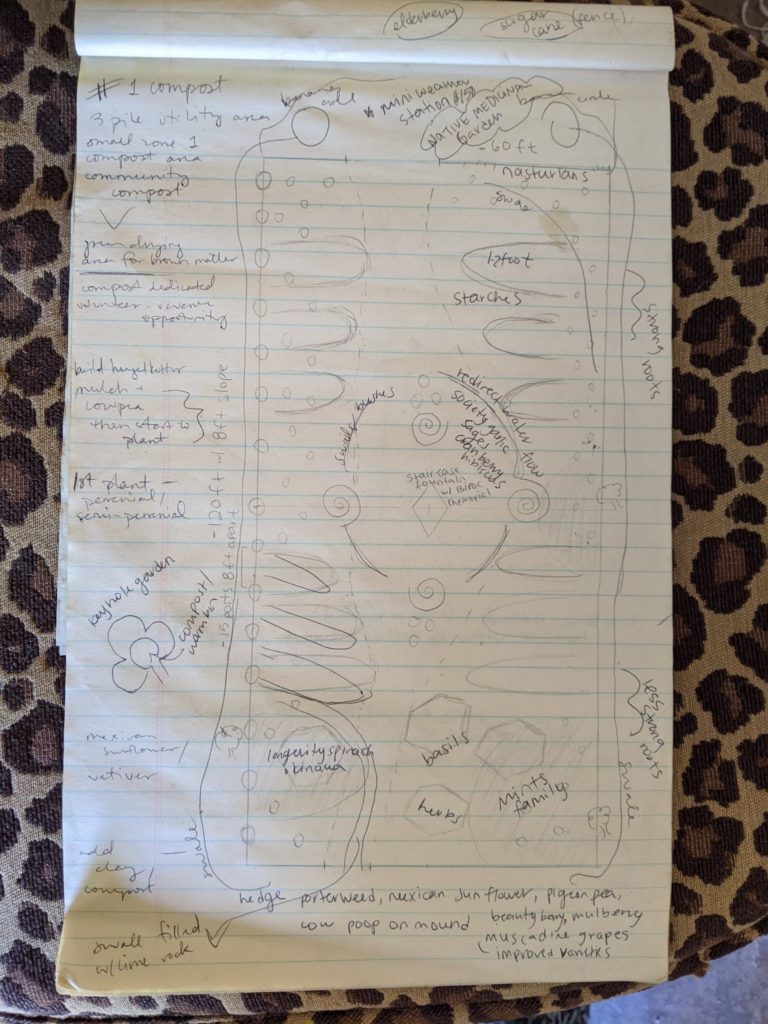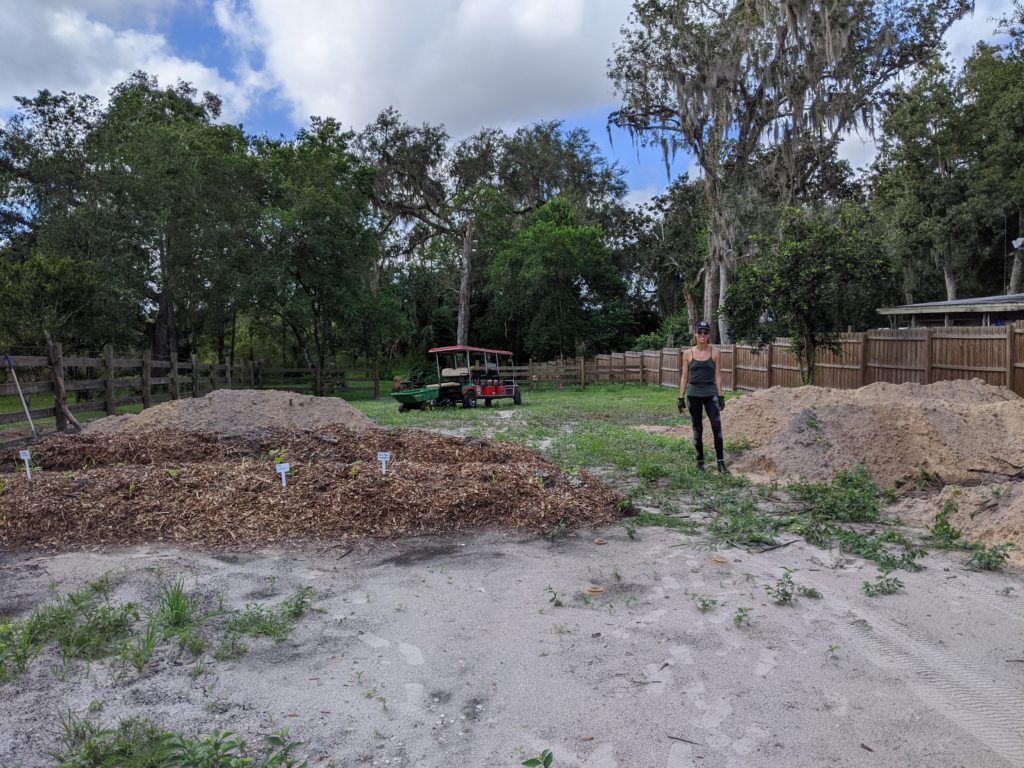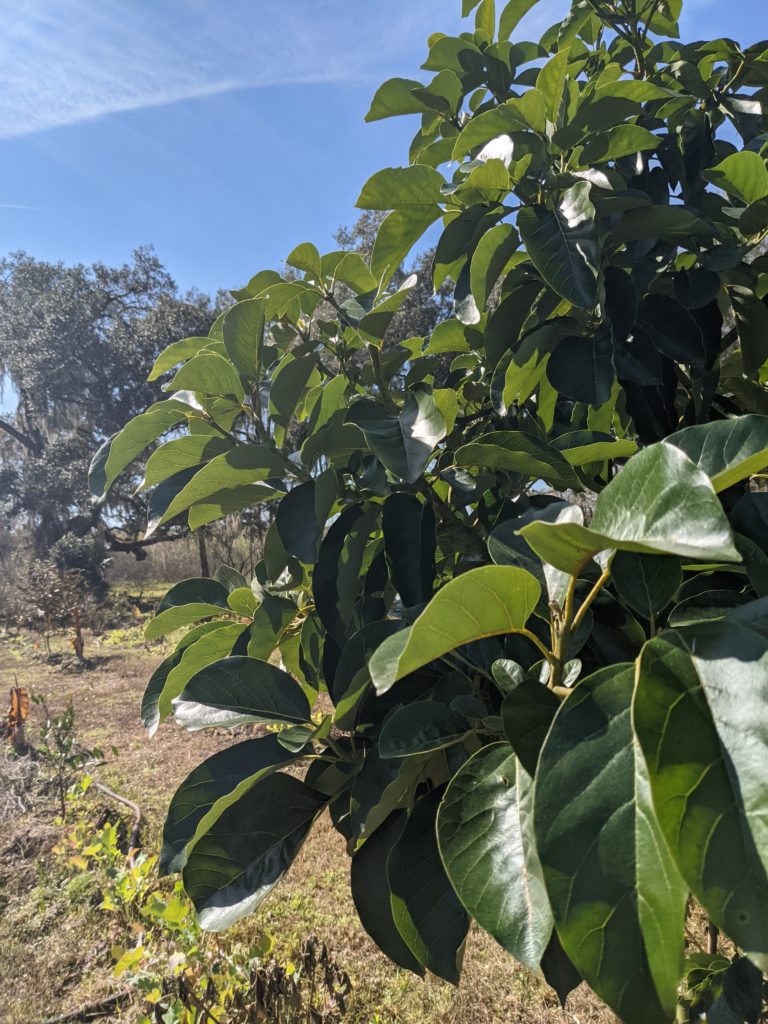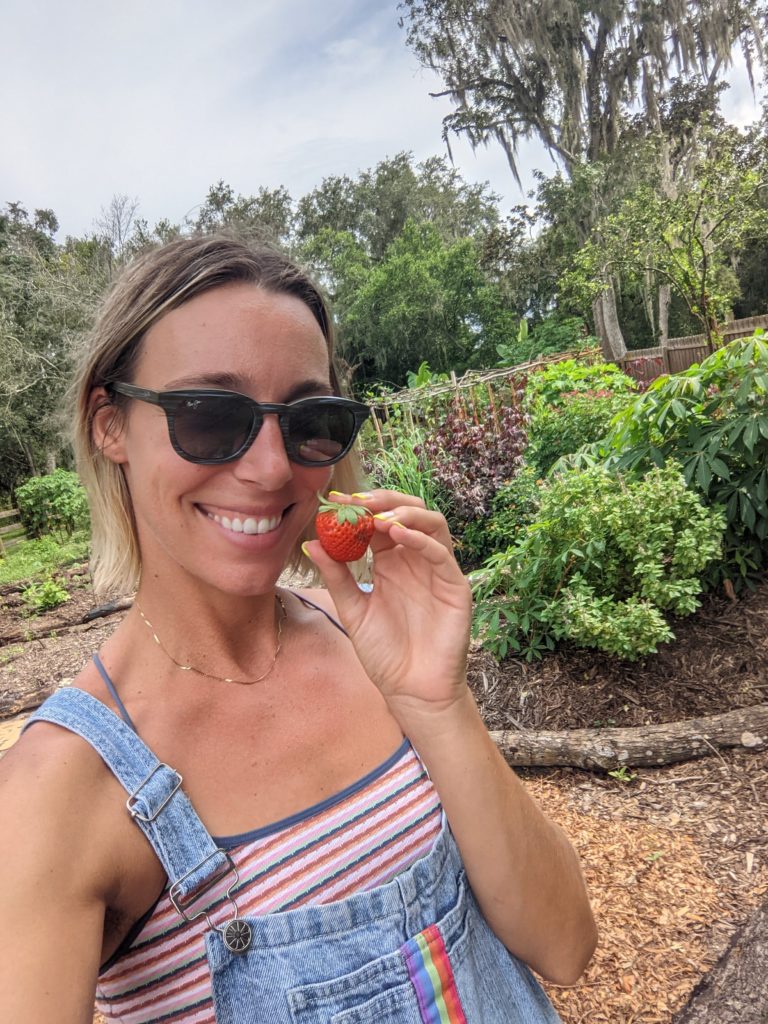A Note to a New Farmer…
We are 66 acres of orange grove, pastureland, and cypress swamps with an idyllic Old Florida feel. We aim to provide a place where you can restore your wonder – by connecting with nature and in turn, yourself.
Learn More About Us
Welcome to wonderfield!
Stay With Us
upcoming Events
Host Your Event
April 4, 2022
One day I woke up, and realized I was a farmer.
Joking aside, this is truly what it feels like. On the journey for about three years of reading the books, taking the workshops, going on countless plant walks and garden tours, and then I had the courage to START.
Plato once said, “The beginning is the most important part of the work.” How can you accomplish great things if you never get started?”
Do you want to have a garden? Do you want to create your homestead? Do you want to grow your own food? The best advice I can give you is, just start.
I have experience in the industries of fashion, tourism, advertising, and more but I will give you the strong warning: never have I experienced so much doubt in what I am doing, and if I’m doing it “right”. Farming and gardening is FULL of “shoulds”. People will want to tell you you should start your seeds like this, not that. They will tell you your composting methodology is wrong and you should do it like this instead. They’ll question the way you prune your trees, the time you choose to harvest, and when you plant.
Do yourself a favor, and let your garden teach you. All the thousand hours of youtube.edu videos, will not replace the actual hands on experience on your land, in your specific climate, and designing your space for your needs. You will fail, and you will learn. Be gentle with yourself and get ready for abundance you never knew was possible. Yes, YOU can do this.
Here are three things I would go back in time to tell myself when I got started:
1. Start Small.
In permaculture gardening, there is the concept of “zones”. For example, zone one is closest to your home and an area you will see daily, like a couple of raised beds just outside of your front door. Zone one is where you’d plant the crops needing most attention, i.e. needs regular water, pest monitoring, soil amendment, etc. Zone five is the “wild zone” where there is no maintenance, but nature in her purest form. Use the concepts of these zones to build your gardens and growth: start small in zone one. Plant a few herbs, and annuals. See how you do, use this to build confidence and experience. The old adage, “don’t bite off more than you can chew” is absolutely relevant here, because although it may be fun to plant and buy up all the fruit trees in your local plant nursery…something you may not be considering is what happens when these plants and trees are ready to harvest? Will you be ready? To harvest, prepare, preserve, and consume or distribute yourself? Are you biting off more than you can chew? Starting small is a key success factor in the humbling path of gardening.

2. Embrace the learning curve.
Gardening and farming has been an incredibly humbling journey. Yes, humbling in the face of failure but also humbling in the face of abundance. It is an exceptionally rewarding pursuit, but get ready to learn i.e. fail! My appreciation of ancient Greek philosophers is showing, as this is the second time I’ve quoted one in this piece but alas, one of my favorite reminders when I meet fortune is, “Luck is what happens when preparation meets opportunity.” said by Seneca. The lesson here is be prepared, but also get ready to meet “luck” in your gardens in no time.

3. Stay the course.
As mentioned before, there are 1,945,322 ways to build a garden. Don’t get disillusioned in the plethora of “shoulds”. The important thing is, start and stay the course! For example, we had a 120′ x 60′ fenced area we created to plant a garden but quickly learned after planting a few seeds, the slope of the area we chose literally washed all our seeds away in the first rain! Well, we stayed the course and instead of distracting ourselves by saying “this won’t work” or trying to move the entire location of the garden, we got some help. We hired two permaculture designers to consult us on what would work in the space, and together we decided to build “hugelkulturs” into the garden which served the purpose to “soak and spread” the water by almost giving a terraced effect down slope. This worked out exceptionally well for us. The success we’ve had growing in this area that was fine sand is so exciting and surprising! But yet, I can’t count the amount of times people have walked in our garden and will critique what we’re doing. “This won’t work” or “You should do it this way” or “This is a better way”. What’s even more mind bending as a novice, is someone will tell you what you are doing is wrong, even though you hired a professional in the same industry that advised you to do exactly what this other gardener / farmer is telling you won’t work. STAY THE COURSE. Do not get swept away in the “shoulds”. Learn for yourself, and remember never to walk in someone else’s garden and farm and tell them what they should be doing 😉


To be clear, staying the course doesn’t mean not having an open mind to learn new techniques, or being open to change and adjustments. Staying the course means focus, perseverance, and patience.
Thank you. I needed this.